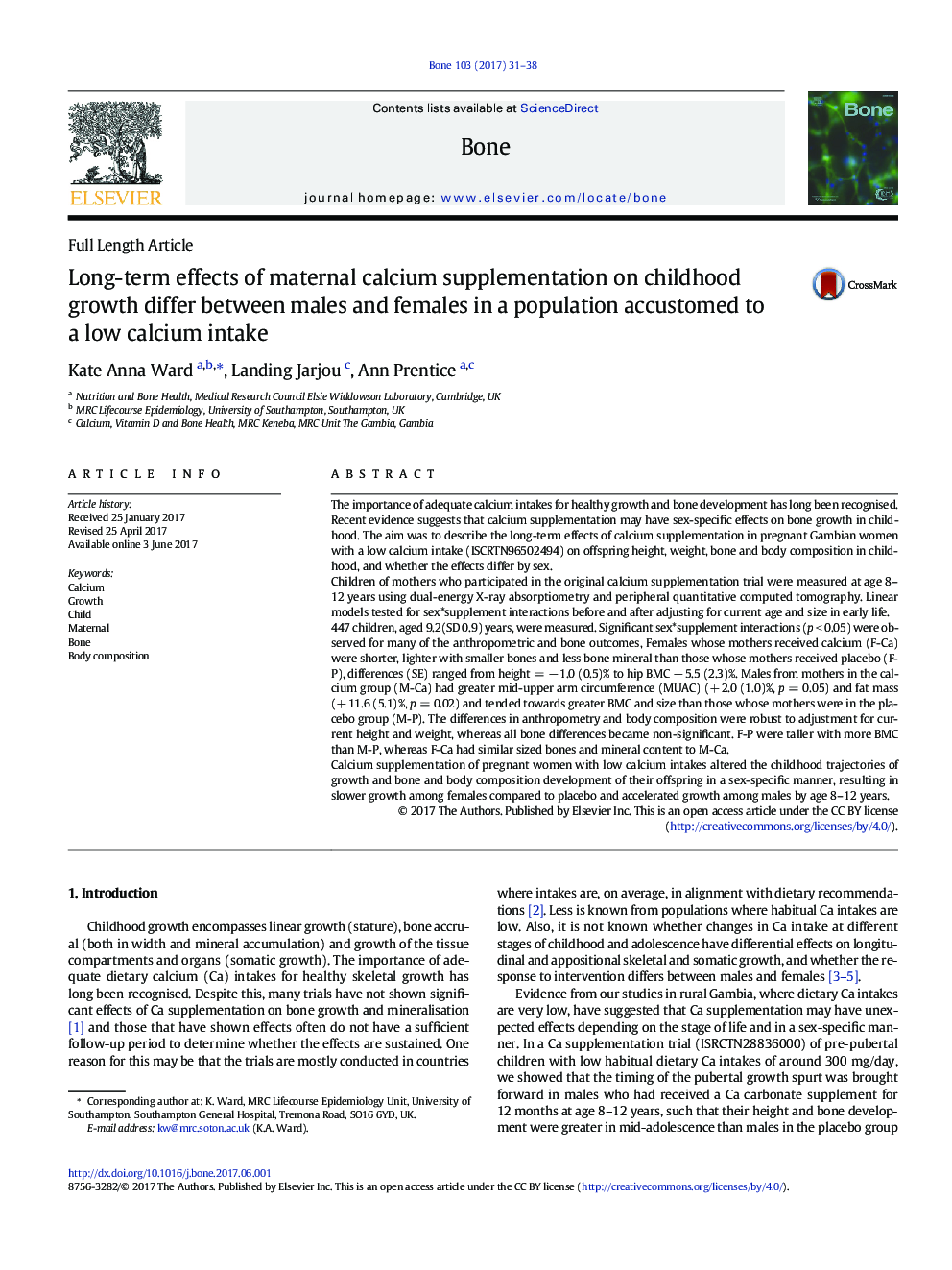| کد مقاله | کد نشریه | سال انتشار | مقاله انگلیسی | نسخه تمام متن |
|---|---|---|---|---|
| 5585253 | 1568116 | 2017 | 8 صفحه PDF | دانلود رایگان |
- Maternal Ca supplementation affects child growth in rural Gambia.
- Calcium offspring girls grew slower than placebo girls, boys tended to grow faster.
- Size-adjustment attenuated differences in bone outcomes.
- Lean and fat mass differences remained after height correction.
- Prenatal Ca nutrition can modify childhood growth after infancy.
The importance of adequate calcium intakes for healthy growth and bone development has long been recognised. Recent evidence suggests that calcium supplementation may have sex-specific effects on bone growth in childhood. The aim was to describe the long-term effects of calcium supplementation in pregnant Gambian women with a low calcium intake (ISCRTN96502494) on offspring height, weight, bone and body composition in childhood, and whether the effects differ by sex.Children of mothers who participated in the original calcium supplementation trial were measured at age 8-12 years using dual-energy X-ray absorptiometry and peripheral quantitative computed tomography. Linear models tested for sex*supplement interactions before and after adjusting for current age and size in early life.447 children, aged 9.2(SD 0.9) years, were measured. Significant sex*supplement interactions (p < 0.05) were observed for many of the anthropometric and bone outcomes, Females whose mothers received calcium (F-Ca) were shorter, lighter with smaller bones and less bone mineral than those whose mothers received placebo (F-P), differences (SE) ranged from height = â 1.0 (0.5)% to hip BMC â 5.5 (2.3)%. Males from mothers in the calcium group (M-Ca) had greater mid-upper arm circumference (MUAC) (+ 2.0 (1.0)%, p = 0.05) and fat mass (+ 11.6 (5.1)%, p = 0.02) and tended towards greater BMC and size than those whose mothers were in the placebo group (M-P). The differences in anthropometry and body composition were robust to adjustment for current height and weight, whereas all bone differences became non-significant. F-P were taller with more BMC than M-P, whereas F-Ca had similar sized bones and mineral content to M-Ca.Calcium supplementation of pregnant women with low calcium intakes altered the childhood trajectories of growth and bone and body composition development of their offspring in a sex-specific manner, resulting in slower growth among females compared to placebo and accelerated growth among males by age 8-12 years.
183
Journal: Bone - Volume 103, October 2017, Pages 31-38
